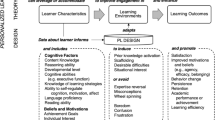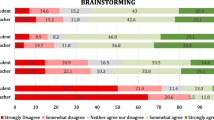Abstract
This paper identifies four successive phases in the study of written feedback to students' compositions. The studies included in these phases are distinguished by views of writing instruction reflected in their theoretical frameworks: the view of writing instruction as a series of teacher provided stimuli and students' responses to these stimuli; the view that the writing class is a rhetorical community, where teacher and students interact as readers and writers over texts; the view of learning to write as a phenomenon both natural and problematic, where school may interfere with students' natural development; the view that learning to write, like all other learning, depends on successful student-teacher interactions within student's zone of proximal development. While reviewing recent studies of written feedback, the paper shows how these changing views of writing instruction are accompanied by changing theoretical perspectives for the study of the provision and processing of written feedback as well as by a gradual expansion of research contexts for looking at this problem. Finally, in view of such a line of development, it suggests an agenda for future research.
Similar content being viewed by others
References
Anderson, J. R. (1982). Acquisition of cognitive skill. Psychological Review, 89, 369–406
Applebee, A. N. (1981). Writing in the secondary school: English and the content areas. Urbana, IL: National Council of teachers of English.
Applebee, A. N. (1984) Contexts for learning to write. Norwood, NJ: Ablex.
Applebee, A. A. and Langer, J. (1983). Instructional scaffolding: reading and writing as natural language activities. Language Arts, 60, 168–175.
Arnold, L. V. (1961). Effects of frequency of writing and intensity of teaching evaluation upon the performance in written composition of tenth grade students. Unpublished doctoral dissertation, Florida State University.
Bames, D. and Schemilt, D. (1974). Transmission and interpretation. Educational Review, 26(3).
Beach, R. (1979). The effects of between drafts teacher evaluation versus student self-evaluation in high school students' revising of rough drafts. Research in the Teaching of English, 13(2), 111–119.
Bereiter, C. and Scardamalia, M. (1987). The psychology of written composition. Hillsdale, NJ: Lawrence Erlbaum Associates.
Bereiter, C. and Scardamalia, M. (1982). From conversation to composition: the role of instruction in a developmental process. In R.Glaser (Ed.), Advances in instructional psychology (Volume 2). Hillsdale, NJ: Lawrence Erlbaum Associates.
Brannon, L. and Knoblauch, C. H. (1982). On students' rights to their own texts: a model of teacher response. College Composition and Communication, 33(2), 157–166.
Britton, J. N., Burgess, T., Martin, N., McLeod, A. and Rosen, H. (1975). The developments of writing abilities (11–18). London: Macmillan.
Brown, A. L. and Ferrara, R. A. (1984). Diagnosing zones of proximal development. In J.Wertsch (Ed.), Culture, communication and cognition: Vygotskian perspectives. New York: Cambridge University Press.
Brophy, J. (1981). Teacher praise: a functional analysis. Review of Educational Research, 51, 5–32.
Butler, J. F. (1980). Remedial writers: the teacher's job as corrector of papers. College Composition and Communication, 31, 270–277.
Carroll, J. A. (1984). Process into product: teacher awareness of the writing process affects students' written products. In R.Beach and L.Bridwell (Eds.), New directions in composition research. New York: Guilford Press.
Cazden, C. (1980). Peek-a-boo as an instructional model: discourse development at home and at school. Papers and Reports on Child Language Development, 17, 1–29.
Cicourel, A. V. (1980). Three models of discourse analysis: the role of social structure. Discourse Processes, 3, 101–132.
Clark, C. M. (1986). Research into practice: cautions and qualifications. In T. E.Raphael (Ed.), The contexts of school-based literacy. New York: Random House.
Clarke, G. A. (1969). Interpreting the penciled scrawl: a problem in teacher theme evaluation. ERIC ED 039241.
Cohen, A. D. (1987a). Student processing of feedback on their composition. In A. L.Wenden and J.Rubin (Eds.), Learner strategies in language learning. Englewood Cliffs, NJ: Prentice Hall International.
Cohen, A. D. (1987b). Studying learner strategies: feedback on composition. Paper presented at the Symposium on SLA Research. AILA Congress, Sydney.
Cohen, A. D. and Cavalcanti, M. (1987). Giving and getting feedback on composition: a comparison of teacher and student verbal report. Evaluation and Research in Education, 1(2), 63–73.
Corsaro, W. (1985). Friendship and peer culture in the early years. Norwood, NJ: Ablex.
Coupe, N. (1986). Evaluating teachers' responses to children's writing. In J.Harris and J.Wilkinson (Eds.), Reading children's writing, a linguistic view, London: Allen and Unwin.
Dunn, S., Florio-Ruane, S. and Clark, C. M. (1985). The teacher as respondent to the high school writer. In S. W.Freedman (Ed.), The acquisition of written language: response and revision. Norwood, NJ: Ablex.
Emig, J. (1971). The composing processes of twelfth graders. Research Report No. 13. Urbana, IL: National Council of Teachers of English.
Ervin, P. G. and Calev, A. (1984). The influence of Christian name stereotypes on the marking of student essays. The British Journal of Educational Psychology, 54(2), 223–227.
Flower, L. (1979). Writer-based prose: a cognitive basis for problems in writing. College English, 41, 19–37.
Freedman, S. W. (1978). The evaluators of students' writing. ERIC ED 150079.
Freedman, S. W. (1984). The registers of students and professional expository writing: influence on teachers' responses. In R.Beach and L.Bridwell (Eds.), New directions in composition research. New York, Guilford Press.
Freedman, S. W. (1987). Response to student writing. Urbana, IL: NCTE.
Gavelek, J. R. (1986). The social context of literacy and schooling: a developmental perspective. In T. E.Raphael (Ed.), The contexts of school-based literacy. New York: Random House.
Gee, T. C. (1972). Students' response to teacher comments. Research in the Teaching of English, 6, 212–219.
Gere, A. R., Schuessler, B. F. and Abbott, R. D. (1984). Measuring teachers' attitudes toward writing instruction. In R.Beach and L.Bridwell (Eds.), New directions in composition research. New York: Guilford Press.
Graves, D. (1983). Writing: teachers and children at work. Exeter, NH: Heinemann.
Green, J. L. and Wallat, C. (1981). Mapping instructional conversations — a sociolinguistic ethnography. In J. L.Green and C.Wallat (Eds.), Ethnography and language in educational settings. Norwood, NJ: Ablex.
Grice, P. (1975). Logic and conversation. In P.Cole and J.Morgan (Eds.), Syntax and semantics III: speech acts. New York: Academic Press.
Gumperz, J. J. (1981). Conversational inference and classroom learning. In J. L.Green and C.Wallat (Eds.), Ethnography and language in educational settings. Norwood, NJ: Ablex.
Harris, W. V. (1977). Teacher response to student writing: a study of high school English teachers to determine the basis of teacher judgement of student writing. Research in the Teaching of English, 11, 115–185.
Hayes, M. F. and Daiker, D. A. (1984). Using protocol analysis in evaluating responses to student writing. Freshman English News, 13(2), 1–5.
Hillocks, G.Jr. (1982). The interaction of instruction, teacher comment and revision in teaching the composing process. Research in the Teaching of English, 16(3), 261–278.
Hillocks, G.Jr. (1986). Research on written composition, new directions for teaching. Urbana, IL: National Conference on Research in English.
Kelly, M. E. (1973). Effects of two types of teacher responses to essays upon twelfth grade students' growth in writing performance. Unpublished doctoral dissertation, Michigan State University.
Kline, C. R. Jr. (1973). Instructors' signals to their students. Paper presented at the annual meeting of Conference on College Composition and Communication, New Orleans. ERIC ED 083 600.
Kroll, B. M. and Schafer, J. C. (1978). Error analysis and the teaching of composition. College Composition and Communication, 29, 242–248.
Lees, E. O. (1979). Evaluating student writing. College Composition and Communication, 30, 370–374.
Lynch, C. and Klemans, P. (1978). Evaluating and evaluations. College English, 40, 166–180.
Marzano, R. J. and Arthur, S. (1977). Teacher comments on student essays: it doesn't matter what you say. ERIC ED 112 412.
McCracken, N. M. (1985). Teachers' response to student writing: a description of the process as teaching, problem-solving, reading and composing. Dissertation Abstracts International, 46,03A.
Michaels, S. (1981). Sharing time: children's narrative style and differential access to literacy. Language in Society, 10, 423–442.
Mosenthal, P. (1983). Defining classroom writing competence: a paradigmatic perspective. Review of Educational Research, 53(2), 217–251.
Odell, L. (1980). Business writing: observations and implications for teaching composition. Theory Into Practice, 19, 225–240.
Perl, S. (1979). The composing processes of unskilled college writers. Research in the Teaching of English, 13, 317–36.
Philips, S. U. (1986). Participant structures and communicative competence: Warm Springs children in community and classroom. In C. B.Cazden, V. P.Johns and D.Hymes (Eds.), Functions of language in the classroom. Prospect Heights, IL: Waveland.
Piazza, C. L. (1987). Investigating context variables in research on writing. Written Communication, 4 (2), 107–137.
Piché, G. L., Michlin, M. L., Rubin, D. L. and Sullivan, A. (1977). Effects of dialect-ethnicity, social class and quality of written compositions on teachers' subjective evaluations of students. Communication Monographs, 44(1), 60–72.
Piché, G. L., Rubin, D. L., Tumer, L. J. and Michlin, M. L. (1978). Effects of nonstandard dialect features in written compositions on teachers' subjective evaluations of students and composition quality. Research in the Teaching of English, 12, 107–118.
Purves, A. C. (1984). The teacher as reader: an anatomy. College English, 46(3), 259–265.
Rafoth, B. A. and Rubin, D. L. (1984). The impact of content and mechanics on judgments of composition quality. Written Communications, 1, 446–458.
Rogoff, B. and Wertsch, J. (Eds.) (1984). Children's learning in the “zone of proximal development”. San Francisco, CA. Jossey-Bass.
Rose, A. (1982). Spoken versus written criticism of student writing: some advantages of the conference method. College Composition and Communication, 33(3), 326–330.
Scardamalia, M. (1987). Constructivity and response to criticism. Paper presented at the AERA annual meeting in Washington, D.C.
Scardamalia, M. and Bereiter, C. (1986). Research on written composition. In M. C.Wittrock (Ed.), Handbook of research on teaching. New York: Macmillan.
Schroeder, T. S. (1973). The effects of positive and corrective written teacher feedback on selected writing behaviours of fourth-grade children. Dissertation Abstracts International, 34, 1935A.
Schwartz, M. (1984). Response to writing: a college-wide perspective. College English, 46(1), 55–62.
Searle, D. and Dillon, D. (1980). The message of marking: teacher written responses to student writing at intermediate grade levels. Research in the Teaching of English, 14, 223–242.
Siegel, M. E. A. (1982). Responses to student writing from new composition faculty. College Composition and Communication, 33(3), 302–309.
Sommers, N. (1982). Responding to student writing. College Communication and Composition, 33(2), 148–156.
Taylor, W. F. and Hoedt, K. C. (1966). The effect of praise upon and quantity and quality of creative writing. Journal of Educational Research, 60, 80–83.
Vygotsky, L. S. (1978). Mind in society: the development of higher psychological processes. Cambridge, MA: Harvard University Press.
Witte, S. P. (1983). Topical structure and writing quality: some possible text-based explanations of readers' judgments of student writing. Visible Language, 12 (2), 117–205.
Wood, D., Bruner, J. S. and Ross, G. (1976). The role of tutoring in problem solving. Journal of Child Psychology and Psychiatry, 17, 89–100.
Ziv, N. (1984). The effect of teacher comment on the writing of four college freshmen. In R.Beach and L.Bridwell (Eds.), New directions in composition research. New York, Guilford Press.
Author information
Authors and Affiliations
Rights and permissions
About this article
Cite this article
Zellermayer, M. The study of teachers' written feedback to students' writing: changes in theoretical considerations and the expansion of research contexts. Instr Sci 18, 145–165 (1989). https://doi.org/10.1007/BF00117715
Issue Date:
DOI: https://doi.org/10.1007/BF00117715




